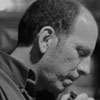Yoko Rises to the Occasion
By Ken FicaraYoko Ono's new album, Rising, is simply outstanding. She has abandoned much of her 1980s attempts at (Roberta) Flackery, and come back with an album that runs the gamut from tough, angry music to beautiful ballads and reminds you that this woman set the stage for a generation of "alternative" musicians.
She was tearing her guts out when Courtney Love was in diapers; she was doing industrial music when there was still industry in the U.S.; she was doing strange spoken word pieces when Laurie Anderson wasn't old enough to drink; and at 63, she is still out ahead of the crowd and kicking some serious ass.
Yes, some of these songs go off into the sort of wordless screaming that characterized some of her extreme 60s work, but with a solid groove underneath that make you want to turn it up instead of turning it off. Despite years of abuse by ignorant Beatles fans who neither like nor understand her work, she's still a fascinating and dangerous musician who will not let you off easily.
Yoko's liner notes describe the album as "a purging of my my pain, anger and fear," and the album progresses in that line, almost too obviously. She says it was written largely from her experiences as a child growing up in Japan during WWII, and about the horrors of Hiroshima, and then compares that to life in New York City today. Perhaps she's overdoing the comparison, but then, maybe she isn't. As she says,
The city is a warzone. And I now have many friends around me who are facing slow death from AIDS. They are suffering low white blood cell counts exactly as the Hiroshima victims were. I am living amongst my suffering friends, listening to them talk about their fear of death, sometimes jokingly, and other times in anger. I live through their nightmares, not daring to voice my own.
The first track, "Warzone", is a straight-ahead hardcore track, with a guitar line that sounds like it was lifted from a Body Count record. "Ask the Dragon" is strongly reminiscient of Laurie Anderson -- quirky spoken vocal, percussion-driven backing track -- but she quickly breaks out of the ironic tone. Her voice cajoles, pokes fun, acts cute, and then assaults you.
"New York Woman" -- the most radio-ready song on the album -- isn't so much angry as powerful, a song for everyone from the Central Park Jogger and Eliza Izquierdo to Tina Brown. This tone carries on, till at the middle of the album, she sings, in "Turned the Corner,":
I turned a corner
It didn't seem that was wrong
I was just having a laugh
But suddenly my friends are gone
And I didn't know that life would be so long.
The song is stark, with an itchy rhythm strummed on acoustic guitar, and a sparse and angular lead guitar that reminds you a bit of Adrian Belew. Following it is "I'm Dying," six minutes of Yoko's wordless agonizing over a hard funk bass line and a driving guitar. People frequently complain that Yoko "screams too much" but then, there's a word for a lot of unintelligible screaming backed up by a good dance groove: rock&roll.
Which brings up another point: Sean Ono Lennon's band, Ima, backs Yoko up on this album and does one hell of a job. In almost every case, when Yoko gets together with crack musicians who understand what she wants to do -- "Walking on Thin Ice," Approximately Infinite Universe -- the result is usually riveting.
In any case, after "I'm Dying," the album turns a corner, starting with "Where Do We Go From Here" and leading into the two centerpiece songs. In "Kurushi," she repeats the song's title (a word meaning something like tormented, pained and suffering, she says) over slow piano and a deliberate drum beat, with a jazz bass occasionally jutting up out of the mix.
The nearly 15-minute title track sounds and builds much like some of Nine Inch Nail's quieter songs, sucking you in with a simple lyric and almost imperceptible music, until before you realize it you're rising with her, from resignation, to anger, to tears, to resolution:
Have courage
Have rage
We're rising
Rising concludes with a beautiful song called "Revelations," which suffers perhaps from a few too many new age solipsisms, but it's so hymnlike and comforting that you don't mind. Yoko's worst work was during the 80s, as she produced new-agey feel-good albums with mushy soft-pop melodies; but it's not that she can't write pretty songs, it's just that her pretty songs work better next to her challenging and dangerous music.
This is an incredibly strong and powerful album. Perhaps this 63-year-old artist will finally find an audience among the same kids who brought punk music and industrial music to mainstream popularity, among these kids who are perhaps too young to remember that she's supposed to be the ice queen who broke up the Beatles. Perhaps they don't give a shit about the Beatles -- perhaps they might even like this independent feminist screaming at the top of her lungs better than another bunch of aging male rock&rollers. Perhaps a generation that has embraced music from around the world in its dance music will reject the racism that condemned a Japanese woman who not only consorted with an English rock icon, but dared to think that maybe she was just as smart, and just as talented, as he was.
Perhaps they might see in this woman a bit of what led John Lennon to spend the rest of his life with her.

